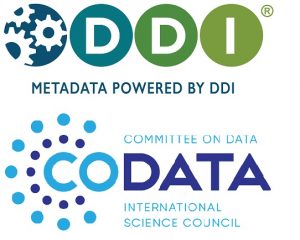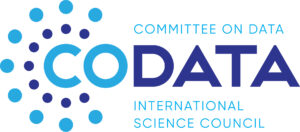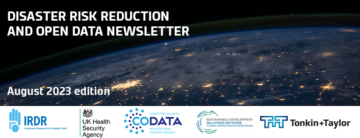
Dangerous humid heat in southern West Africa about 4°C hotter due to climate change
The southern coastal zone of Western Africa – also called the Guinea zone – experienced abnormal early season heat in February 2024. A combination of high temperatures and relatively humid air resulted in area average Heat Index values of about 50°C, which is classified to be in the ‘danger’ level that is associated with a high risk of heat cramps and heat exhaustion.
The European Commission has laid out a comprehensive strategy to empower Member States in managing climate risks effectively.
The Communication responds to the first ever European Climate Risk Assessment (EUCRA), a scientific report by the European Environment Agency. Together, they are a call to action for all levels of government, as well as the private sector and civil society. They set out clearly how all major sectors and policy areas are exposed to climate-related risks, how severe and urgent the risks are, and how important it is to have clarity on who has the responsibility to address the risks.
UNDRR-WMO Pushes Climate Information For Risk Management
The UN Office for Disaster Risk Reduction (UNDRR) and the World Meteorological Organization (WMO) published a “Technical Guidance on Application of Climate Information for Comprehensive Risk Management” to provide the necessary know-how to develop and strengthen a policy basis for DRR and risk-informed development.
Cultivating change: Sri Lanka’s smallholder farmers explore climate-resilient solutions.
On the north-central plains of Sri Lanka, in the small rural village in Galenbindunuwewa, a community of maize farmers are reshaping their farming practices to respond to the growing challenges posed by climate change. They recently welcomed researchers from the International Water Management Institute (IWMI) and a delegation from the United States Department of Agriculture’s (USDA) Food for Progress Program to share their experiences and aspirations, and to discuss climate-resilient solutions.
Commission sets out key steps for managing climate risks to protect people and prosperity
The European Commission has today published a Communication on managing climate risks in Europe. It sets out how the EU and its Member States can better anticipate, understand, and address growing climate risks. It further presents how they can prepare and implement policies that save lives, cut costs, and protect prosperity across the EU.
Lessons on resilience from a year of global earthquakes
Rapid population growth in disaster-prone regions concentrates people where recovery after extreme events is costly. Thanks to Japan’s years of planning, preparations, and implementation of resilient building strategies, the country has become adept at mitigating the effects of significant earthquakes.
Building Safer and More Resilient Schools in a Changing Climate
Natural hazards, have a devastating effect on children’s education and lives in every corner of the globe. Through its Global Program for Safer Schools (GPSS), the World Bank works hand-in-hand with client countries to ensure the resilience of school infrastructure. This article looks at knowledge, financing, and grants from the World Bank can combine to create impact at scale, over the last 10 years, GPSS has made schools safer for 121 million students across 35 countries.
Read the full newsletter here
- SEO Powered Content & PR Distribution. Get Amplified Today.
- PlatoData.Network Vertical Generative Ai. Empower Yourself. Access Here.
- PlatoAiStream. Web3 Intelligence. Knowledge Amplified. Access Here.
- PlatoESG. Carbon, CleanTech, Energy, Environment, Solar, Waste Management. Access Here.
- PlatoHealth. Biotech and Clinical Trials Intelligence. Access Here.
- Source: https://codata.org/read-now-disaster-risk-reduction-and-open-data-newsletter-april-2024-edition/
- :has
- :is
- :where
- 10
- 121
- 2024
- 35%
- a
- abnormal
- About
- across
- Action
- address
- adept
- africa
- After
- agency
- AIR
- All
- also
- and
- anticipate
- Application
- April
- April 2024
- ARE
- AREA
- areas
- article
- AS
- associated
- At
- average
- Bank
- basis
- BE
- become
- Better
- Building
- by
- call
- call to action
- called
- CAN
- challenges
- change
- changing
- civil
- clarity
- classified
- clearly
- client
- Climate
- Climate change
- coastal
- CODATA
- combination
- combine
- commission
- committee
- Communication
- community
- comprehensive
- Concentrates
- Corner
- costly
- Costs
- countries
- country
- create
- Cut
- cut costs
- data
- delegation
- Department
- devastating
- develop
- Development
- disaster
- discuss
- due
- Early
- edition
- Education
- effect
- effectively
- effects
- empower
- ensure
- Environment
- EU
- Europe
- European
- european commission
- events
- Every
- experienced
- Experiences
- explore
- exposed
- extreme
- farmers
- farming
- February
- financing
- First
- food
- For
- from
- full
- further
- Global
- globe
- Government
- grants
- Growing
- Growth
- guidance
- Have
- High
- How
- HTTPS
- humid
- Impact
- implement
- implementation
- important
- in
- index
- information
- Infrastructure
- Institute
- International
- IT
- ITS
- Japan’s
- Key
- knowledge
- laid
- Last
- Level
- levels
- Lives
- LOOKS
- made
- major
- management
- managing
- member
- million
- mitigating
- more
- necessary
- Newsletter
- now
- of
- Office
- on
- open
- open data
- organization
- out
- over
- People
- planning
- plato
- Plato Data Intelligence
- PlatoData
- policies
- policy
- population
- posed
- practices
- Prepare
- presents
- private
- private sector
- Program
- Progress
- prosperity
- protect
- provide
- published
- pushes
- Read
- recently
- recovery
- reduction
- regions
- relatively
- report
- researchers
- reshaping
- resilience
- resilient
- Respond
- responsibility
- resulted
- Risk
- risks
- Rural
- safer
- Save
- Scale
- School
- Schools
- Science
- Science and Technology
- scientific
- Season
- sector
- Sectors
- set
- Sets
- severe
- Share
- significant
- small
- Society
- Solutions
- Southern
- sri lanka
- States
- Steps
- strategies
- Strategy
- Strengthen
- Students
- Technology
- thanks
- that
- The
- the world
- their
- they
- this
- Through
- to
- today
- together
- UN
- understand
- United
- United States
- urgent
- usda
- Values
- Village
- Water
- welcomed
- WELL
- West
- west africa
- Western
- which
- WHO
- with
- works
- world
- World Bank
- year
- years
- zephyrnet
- zone











